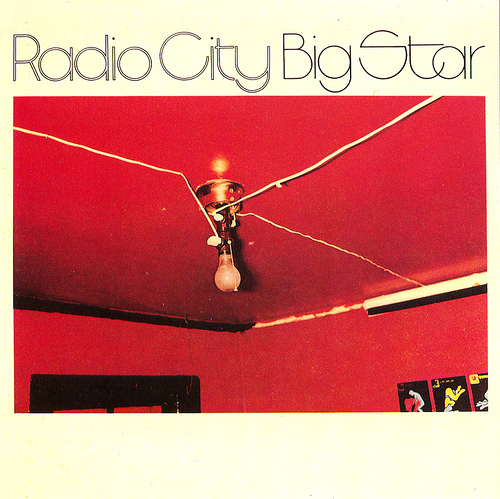If Big Star’s #1 Record was an album that charmed me from the moment I heard it, Radio City is an album with which my relationship has evolved incrementally over time. When I first heard it, I have to admit, I was disappointed. Sure, “September Gurls” is a great song, to the point where it is perhaps Big Star’s greatest song and “O My Soul” has that brilliantly off-kilter riff which I fell for instantly, but little else matched up to their debut in my eyes.
Maybe it was the fact that following the departure of Chris Bell, Alex Chilton was the band’s sole creative director. Maybe it was the fact that, despite my growing appreciation of “September Gurls”, “O My Soul” and “I’m in Love With a Girl”, nothing bowled me over in the same way that “The Ballad of El Goodo” had. Despite Big Star’s hard-won experience at this stage in their career, Radio City is an album that sounds less well balanced than #1 Record, and just doesn’t satisfy in the same way.
Then it hit me.
Of course it’s not going to impress me in the same way, because you can only hear a band for the first time once.
Once I got my head around this simple truth, I started to appreciate Radio City a lot more, as I adjusted my expectations of it. Of course it wasn’t going to catch me off guard like its predecessor did, because this time, I’m expecting to be impressed. Having let go a lot of my expectations, it was an album that came to me, drawing me in slowly, gradually convincing me that it was worth the praise that had been lavished upon it by powerpop enthusiasts.
Listening to Radio City, you start out assuming that you’ve heard it all before, then you realise that the reason for this is because the album is one of the foundation stones upon which the whole powerpop genre has been built on. Be it Cheap Trick, Teenage Fanclub, The Posies (especially The Posies), Weezer, or just about anyone else that’s strapped a big jangly guitars to an irresistible chorus, they all owe a significant debt to Radio City.
Although Chris Bell apparently contributed to Radio City early in its genesis, his absence means that the album has a little less light and shade than what had gone before. Effectively this means that the album is largely a display of Alex Chilton’s pop genius beginning to flirt with his more experimental tendencies. In this sense, Radio City is a fascinating document of an accomplished artist starting to add additional elements to an already strong formula in an attempt to compensate for the absence of a creative partner. Whether you feel that this works in the album’s favour or not depends very much on the individual and whether they have a preference for straight up pure powerpop, or for a sound which throws a little more grit into the mix.
Radio City is an album that I have grown to appreciate over time, and my regard for it continues to grow. While I doubt it will ever eclipse my love for #1 Record, it’s a fascinating next chapter in the Big Star story, and one that all fans of powerpop should go out of their way to familiarise themselves with.














No Comment